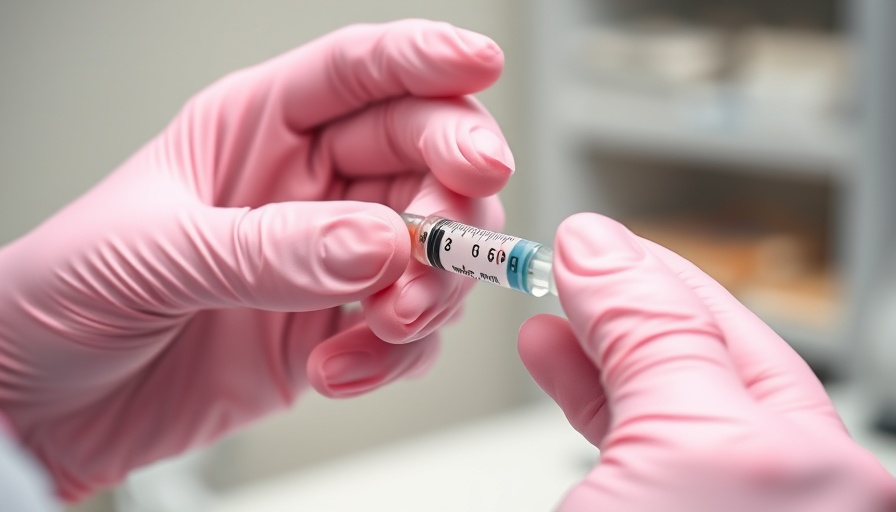
Measles Outbreak Shocking Public Health and Safety
The recent surge in measles cases across the United States has sent shockwaves throughout communities, particularly in states like Texas, Ohio, and Indiana. As the total count of measles cases surpassed 1,000, public health officials are raising alarms about the dangerous resurgence of this highly contagious virus—once declared eliminated in the U.S. in 2000. Two tragic deaths have been reported among unvaccinated children in Texas, highlighting the severe consequences of low vaccination rates.
Understanding the Current Situation: A State-by-State Breakdown
Texas continues to bear the brunt of this outbreak with 709 confirmed cases, mainly in West Texas. This region is home to a substantial Mennonite community, known to have lower vaccination rates. Here, health officials are scrambling to find ways to contain the spread, in part due to the densely populated nature of some communities.
Meanwhile, Ohio has documented 34 cases across the state, with notable outbreaks in Ashtabula and Knox counties. Similar patterns of low vaccination contributing to vulnerability are observed, sparking fears that these outbreaks could persist for months to come.
In Indiana, eight cases have emerged, all traced to Allen County, where community health officials are diligently working to uncover connections and manage the situation. The diverse exposure of these states reflects a broader pattern seen nationally—an alarming revival of measles correlated with decreased vaccination rates.
The Consequences of Vaccine Hesitancy
Health experts are sounding the alarm about decreasing vaccination rates leading to severe consequences. The measles virus spreads rapidly when individuals are not immunized, leading to outbreaks that can stretch on for years in communities with low vaccination compliance. Education and outreach efforts are desperately needed to combat misinformation about vaccines and restore faith in immunization.
The CDC defines an active outbreak as three or more related cases, making it clear that these numbers are just the tip of the iceberg. With ongoing outbreaks stretching from Ohio to Texas, the public must understand the importance of vaccination. Measles is not merely a childhood illness; it poses real health risks to all citizens, especially those who cannot be vaccinated.
Community Actions: What Can We Do?
Here’s where communities can step in: local initiatives aiming to educate, raise awareness, and promote vaccination must be prioritized. Neighborhood health fairs, school seminars, and partnerships with local clinics can facilitate a greater understanding and help increase vaccination rates, thereby protecting vulnerable populations and ensuring herd immunity.
Residents should feel empowered to engage with their healthcare providers, inquire about vaccination schedules, and even advocate for vaccination drives within their neighborhoods. Together, through grassroots efforts and community bond-building, we can combat this preventable disease.
Future Predictions and Preventative Measures
As we look to the future, it’s essential to recognize that preventing further outbreaks hinges on our response today. Health officials believe that without intervention, measles could remain a persistent threat. Vaccine education initiatives could significantly reduce new cases if implemented effectively. Creating a culture of vaccination not only protects individuals but also helps shield the community at large against these preventable diseases.
It is imperative for everyone, from policymakers to individual families, to understand the importance of vaccination against measles and join forces in safeguarding public health. By increasing dialogue around vaccination and supporting accessible immunization opportunities, the road to recovery from this resurgence can begin.
As communities assess health risks and prepare for potential outbreaks, understanding these dynamics can foster better decision-making and stronger connections among residents. Stay informed, stay safe, and remember that by advocating for vaccinations, we are ultimately protecting the healthcare future of our communities.
 Add Row
Add Row  Add
Add 




 Add Row
Add Row  Add
Add 








Write A Comment